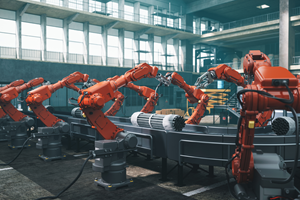Dispelling Five Myths about Hiring Workers with Disabilities
Manufacturers seeking skilled workers should rid themselves of the misconceptions many hold about hiring disabled individuals, especially those with specialized industrial training.
Share




Manufacturing professionals generally place the shortage of qualified workers near the top of their list of challenges, but many ignore a potential resource due to preconceived notions that are usually dated, and often untrue. At least, that’s the view of Skills Inc., an aerospace supplier with three locations based in and around Seattle, Washington. This nonprofit offers training, vocational services and job placement to special-needs employees and also hires them for its own purposes.
Cheryl Roe, MNPL (master’s in nonprofit leadership), director of programs and development, says, “Too many employers assign difficulties that simply don’t exist to the prospect of hiring people with disabilities. Part of our mission is to show that you really can succeed while at the same time helping others.”
Building Skills
The company was founded in 1966, and in the beginning it was solely dedicated to training individuals with various disabilities on how to manufacture parts that were then supplied to the aerospace market. The range of work has expanded since then, but this sector still makes up about 40 percent of its activities. The remainder involves finishing, assembly and technical services, along with business solutions such as kitting and polybagging. ISO 9001 and AS9100 registered, the company handles sheet metal fabrication—including punching, forming and deburring—and three-, four- and five-axis CNC machining and programming. Machining is conducted on more than 20 high-performance pieces of equipment, including a CNC lathe from Okuma and a dozen CNC mills from Haas, Fadal and Bridgeport. All three-, four- and five-axis machines were recently equipped with Vericut, the CNC machining simulation/optimization software package developed by CGTech. All of the company’s technology was paid for by the revenue it generates, (rather than being donated or funded by grants), and in addition to producing aerospace-worthy parts, Skills Inc. ensures that program graduates deliver leading-edge operational knowledge to their employers.
Work such as this could not be accomplished without skilled employees, Ms. Roe points out. Skills Inc.’s example, along with statistics compiled by the U.S. Department of Labor’s Office of Disability Employment Policy (ODEP), helps the company educate manufacturers about their mistaken notions regarding hiring those with mental and physical challenges.
“We have the numbers to disprove the myths,” Ms. Roe says, “and we also have direct, real-world experience.”
Toppling the Top Five
According to ODEP, of the many misconceptions employers hold, five in particular qualify as being “myths.” That list, including rebuttals, is as follows:
Myth 1: Increased workers’ compensation costs. Some employers believe that hiring individuals with disabilities increases workers’ compensation insurance rates. Not so. The fact is that insurance rates are based solely on the relative hazards of the operation and the organization’s accident experience, not on whether workers have disabilities.
Myth 2: Providing access is expensive. Many employers are convinced that providing accommodations for people with disabilities is expensive, but the majority of workers with disabilities do not need accommodations to perform their jobs. For those who do, the cost to the employer is usually minimal. In fact, two-thirds of accommodations cost less than $500, with many costing nothing at all. Available tax incentives make it even easier for businesses to cover accessibility costs. “Shop floors are inherently spacious, so quite often you’ll find that relatively few modifications are required to make them accessible,” Ms. Roe says, “such as raised guideways for the visually impaired so they can follow paths easily with their canes.”
Myth 3: ADA forces employment. Many mistakenly believe that the Americans with Disabilities Act (ADA) forces employers to hire unqualified individuals with disabilities. Actually, unqualified candidates are not protected under the ADA. To be protected from discrimination in hiring, an individual must first meet all requirements for a job and be able to perform its essential functions with or without reasonable accommodations.
Myth 4: Absenteeism is an issue. There is a perception that employees with disabilities have a higher absentee rate than employees without disabilities, but studies by firms such as DuPont show that employees with disabilities are not absent any more than employees without disabilities. “I can tell you firsthand that we have a very high level of employee satisfaction and dedication here,” Ms. Roe attests. “And employee turnover is especially low.”
Myth 5: Once hired, never fired. Many employers mistakenly believe that, under the ADA, they cannot terminate the employment of an individual who has a disability. In reality, employers can release workers with disabilities under three conditions: The termination is unrelated to the disability; The employee does not meet legitimate requirements for the job, such as performance or production standards, with or without a reasonable accommodation, or; Because of the employee’s disability, he or she poses a direct threat to health or safety in the workplace.
Stories of Success
As plant manager of Skills Inc.’s Auburn South location, Dan Olson has a front-row view of the program’s overall operations. Although specific employee challenges are not divulged, recent data provides a company-wide breakdown of general categories of challenges:
- Physical/medical (28 percent)
- Developmental/learning (27 percent)
- Emotional/mental health (18 percent)
- Deaf/hard of hearing (11 percent)
- Visual (5 percent)
- Not specified (11 percent)
Mr. Olson says that he observes success stories on a daily basis, including that of Nicholas Podszus, who in September 2010 joined the company’s Aerospace Internship Program (AIP)—an educational job-training program for high school students with disabilities and special needs coordinated with local community school districts. When the program was presented to him by a teacher at Enumclaw High School, Mr. Podszus was relieved to hear there was an alternative to the traditional high school setting, where he could still work toward completing his high school education. “Mr. Podszus has always worked well with his hands, and he didn’t enjoy the long days spent in a traditional classroom environment,” Mr. Olson says.
As an alternative, he was able to spend half of each school day at Skills Inc., where he gained experience in areas including manufacturing (milling, CNC, shearing) and finishing (takedown, packaging and receiving), while also learning about working productively in an office setting.
“Since he was a child, Mr. Podzus had wanted to be employed in one of two professions: a machinist or an architect,” Mr. Olson says. “The AIP program allowed him to feel that his dreams of becoming a machinist may actually be achievable and within reach, and he focused each day and made his best effort to demonstrate to his mentors that he had what it takes to perform the tasks given to him.”
Mr. Podszus graduated from high school and the AIP in June 2011 and was one of two students to receive full-time, permanent job offers from Skills Inc. He has worked as a manual machinist for three years now and has been promoted from a level-one to a level-two machinist. “Mr. Podzsus enjoys the security of knowing that his place of employment is stable, and also that he has opportunities for growth,” Mr. Olson says.
Another AIP trainee is HarleyFay Johnson, who entered the program during her senior year of high school. The program engages students in a “learning by doing” environment, and it is meant to be an alternative to a traditional classroom setting. Ms. Johnson was able to gain exposure to many areas of the business, including aerospace manufacturing, aerospace finishing and even some administrative functions throughout the duration of her time in AIP. As a result of the experience, she regained her academic momentum and successfully graduated from high school. She was offered a three-month paid internship with Skills Inc. in the summer of 2013, where she made clear that she wanted to become a machinist.
“Ms. Johnson began her summer by working primarily in the manual machine area, where she excelled,” Mr. Olson recalls. “At the conclusion of her internship she was offered a full-time position as a manual machinist, and she is also gaining experience and developing her skills in the CNC machine area as well. She is an example of an ambitious and motivated employee, and we are excited to see her continued professional growth.”
A World of Opportunity
At a point in time when manufacturers are more open to creative solutions to the workforce shortage they face—such as reaching out to local high schools, community colleges and universities to recruit students seeking career direction—Skills Inc. sees a particular opportunity to find a receptive audience for its message of inclusion. It has recently entered into a collaboration with the Washington State-funded Aerospace Joint Apprenticeship Committee (AJAC) to launch the Precision Metal Fabricator (PMF) apprenticeship program at its Auburn South facility, with the possibility of offering future registered training programs for professions such as machinist (aircraft-oriented), tool and die maker and aircraft airframe mechanic that already have been developed by AJAC. With nearly five decades of highly successful operation under its belt, however, the company’s best argument in favor of its cause occurs on the shop floor every working day.
“We’ll continue working with local schools to let students who might excel in our environment know this opportunity exists and with local industries to make them aware of the caliber of our graduates,” Ms. Roe says. “Once we’ve convinced employers that the risks they’ve envisioned are basically nonexistent, it opens up a whole new world of promise for everyone involved.”
Skills Inc., call 206-782-6000 or visit skillsinc.com.
Related Content
Arch Cutting Tools Acquires Custom Carbide Cutter Inc.
The acquisition adds Custom Carbide Cutter’s experience with specialty carbide micro tools and high-performance burrs to Arch Cutting Tool’s portfolio.
Read MoreRego-Fix Appoints New Global Aerospace Specialist
Sherman D’Souza will provide global customers with access to Rego-Fix research, development and technical support teams to create and supply toolholding solutions.
Read MoreForkardt Hardinge Swiss Workholding Provides Reliable, Consistent Performance
The company’s Swiss collets are designed to securely hold parts without marring surfaces, minimizing vibration to ensure smoother machining, enhanced accuracy and extended tool life.
Read MoreIncreasing OEM Visibility to Shopfloor Operations for the Win
A former employee of General Motors and Tesla talks about the issues that led to shutdowns on factory lines, and what small- to medium-sized manufacturers can do today to win business from large OEMs.
Read MoreRead Next
Registration Now Open for the Precision Machining Technology Show (PMTS) 2025
The precision machining industry’s premier event returns to Cleveland, OH, April 1-3.
Read MoreBuilding Out a Foundation for Student Machinists
Autodesk and Haas have teamed up to produce an introductory course for students that covers the basics of CAD, CAM and CNC while providing them with a portfolio part.
Read MoreSetting Up the Building Blocks for a Digital Factory
Woodward Inc. spent over a year developing an API to connect machines to its digital factory. Caron Engineering’s MiConnect has cut most of this process while also granting the shop greater access to machine information.
Read More
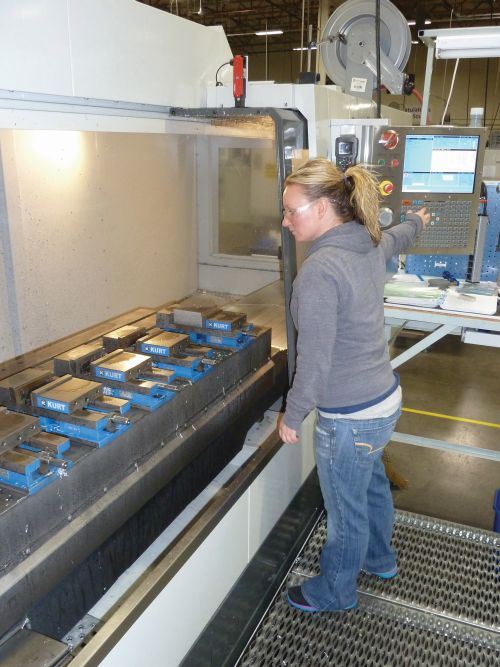
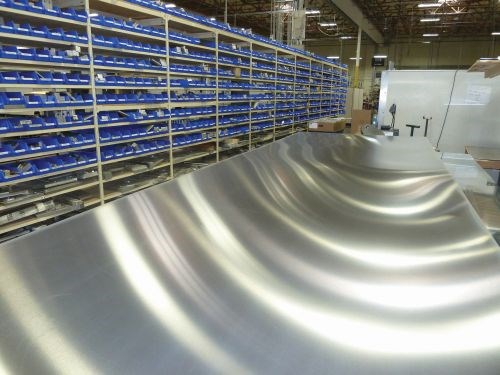
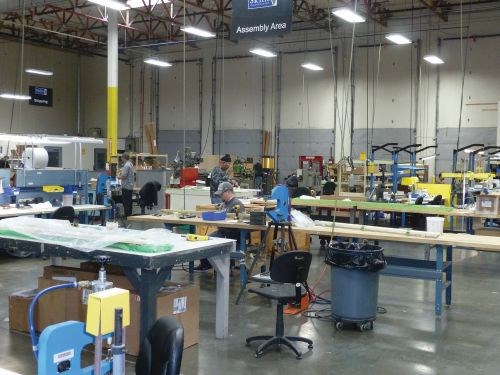
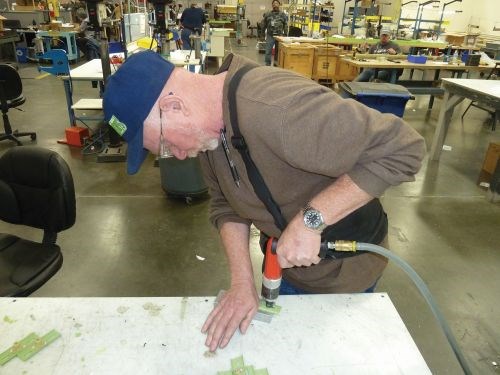
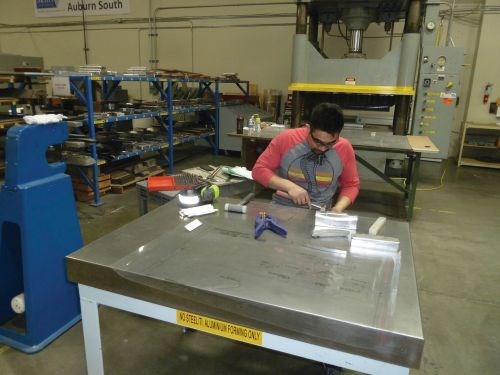
















.jpg;maxWidth=300;quality=90)
















